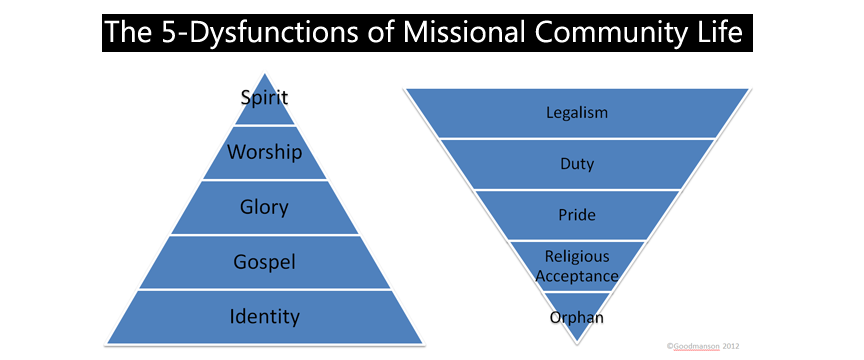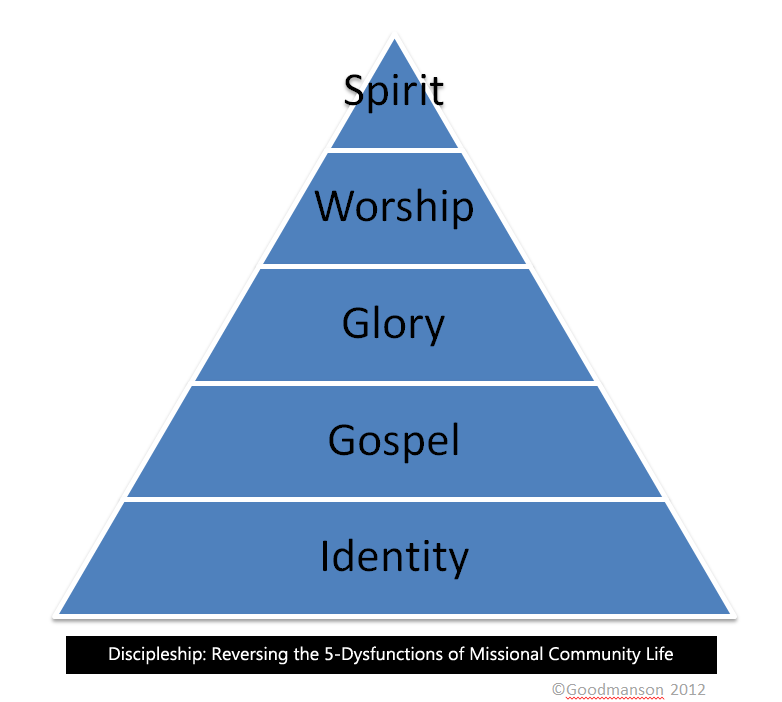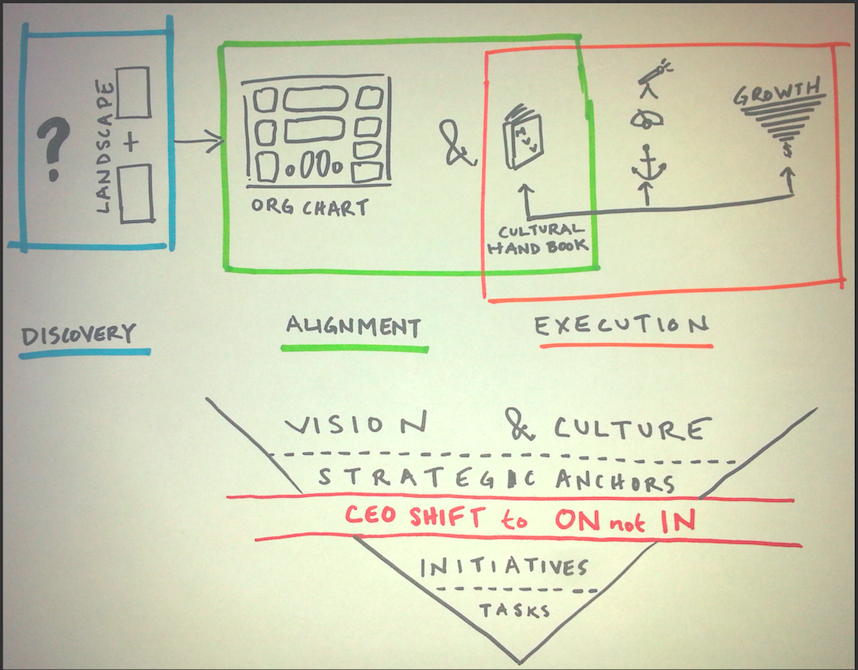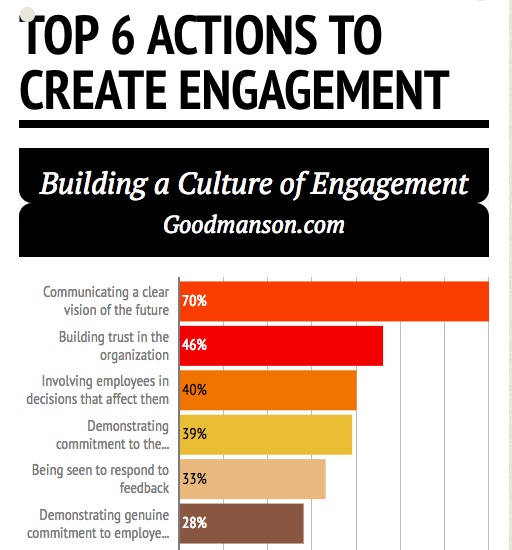This weekend I was thinking about why missional community life often feels broken. More specifically, why do people resist or fight against the call to be missional in community? As I’ve thought about my own experience and gathering from some of what I’ve learned as part of the GCM Collective, I thought of the idea of The 5-Dysfunctions of Missional Community. Agree? Disagree? I would love to hear your take on what I’m saying are the 5-Dysfunctions of Missional Community.
Working theory: Calling people to be missional or in a ‘missional community’, is the absolute wrong place to start. The very name puts the emphasis on the ‘results’ or fruit of the Christian life rather than who they are in Christ. (Aside: If I were to start over, I don’t think I’d call them Missional Communities.) Because, for many, the way of life of the missonal community is so foreign from their Christian/Church experience it ends up being a new law, or way of living they try to perform in their desire to please God. The issue becomes one of needing foundational discipleship for people in order for them to move to a place where living life on mission is a joyful result of a transformed life.
What common dysfunctions cause the mission to be derailed? Here’s what I’ve been toying with called the 5-Dysfunctions of Missional Community. The pyramid on the left represents the corresponding areas of discipleship that would need focus on. The right upside down pyramid represents the ‘right-side’ errors that that need to addressed. (Another set of errors around licentiousness exist).

So what should we do to address these potential dysfunctions? Go after the 5 truths needed that lead to a life of fruitful mission. I’ll unpack these from the bottom, up.
Identity: At the foundation, people’s identity needs to change. First and foremost this begins at conversion, but continues where people see the idea of ‘adoption’ into the family of God as Sons is critical. Often believers struggle with one foot in the world (eg. consumers) versus finding their identity as the Kingdom of Priests. Without this identity changing, it is difficult to move upward. (Part of the reason that I wrote Going Deeper: Preaching the Gospel & Your Identity)
Gospel: After the identity change, people’s motivations come into play. If they are not adopted sons, the legalism/licentiousness errors creep in as people find motivation for acceptance on what they do (orphan mentality) rather than who they are and the grace that changes everything. If the gospel isn’t the motivation, mission will be short-lived.
Glory: Next, people have to see and behold God’s glory and fear him. This will be the beginning of wisdom and cause them to live as God commands.
Worship: Next as these come together an attitude of joyful “I get to” takes place. Rather than duty, mission becomes an act of worship because we are loved by God and love Him.
Spirit: Lastly, we see we cannot do this by our own power. It is only through prayer and seeking the Holy Spirit’s lead can we embark on mission. It is in our resting in God and His Spirit that spiritual fruit is produced.
So, right now my working theory is that we start at the bottom and work up as follows:

What foundational discipleship do you see necessary as you lead your people on mission?
RELATED POSTS


